Que Onda? Interview with Nelda Reyes, Rose Cano, and Carmen Aguirre
Que Onda? (“What’s up?”) are interviews with comadres and compadres meant to shine a light on what small or large companies; independent artists or ensembles are doing around the country. Café Onda is an evolving publication. Sit back, take a break, and catch up on what's up in the Latina/o theatre scene.
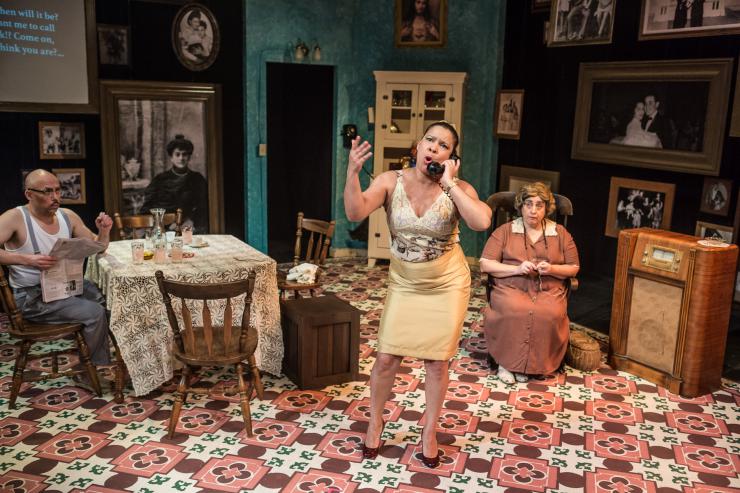
Christopher Goodson: How do you feel the Pacific Northwest has changed for Latino artists in the last three to five years, if at all?
Rose Cano: May 6, 2016 will mark eSe Teatro's sixth year. I feel that so many things have changed since we first started out. I feel like Latino artists in Seattle are reaching a critical mass. There is a combination of new Latino talent pouring out of training programs like Cornish College of the Arts, University of Washington, and Seattle University, and Latino talent that has been here for a long time without enough opportunities to shine.
Nelda Reyes: As an independent Portland-based artist, I can say that I have seen change in terms of the visibility that Oregon Shakespeare Festival and other major companies such as Artists Repertory Theatre and Portland Experimental Theatre Ensemble have brought to established Latino playwrights by producing their work. Regarding casting, sometimes there is the hiring of local Latino actors but major companies still tend to hire out-of-town talent for main roles. We are in need of more Latino designers and technicians that could support our productions. The continuous work of the Latino-focused Milagro Theatre has been able to maintain its relevancy and it is my understanding that has seen a sustained growth in their audiences due to demographic changes over the last five years.
Carmen Aguirre: In Vancouver, I have long been the lone Latino playwright and actor. And so it is beyond exciting for me to see that in the last few years there are more Latino actors and playwrights exploring our Latinidad, the Canada/Latin America border, and demanding to be cast in plays that feature Latino characters. I am starting to feel that I belong to a community of Latino theatre artists in Vancouver. Unlike the States, the Latino presence in Canada is very new. The first Latinos to arrive here en masse were the Chilean refugees forty years ago. I was part of that batch. But it is only recently that Latinos have become a real presence in this city, even if we still only make up about three percent of the population. Most of us were not born here and many come with harrowing stories of political repression from back home. Right now, our stories and our presence on our stages are still about landing here, about what it means to be Latino in a city that renders us invisible.
Christopher: How have these changes affected your work, if at all?
Carmen: Knowing that I am no longer the only one telling stories of Latinidad in Vancouver affects my work positively. It makes me think the possibilities are endless. Even if I think about casting my plays, it is a relief to know that there are Latino actors to choose from.
Nelda: As a young and somewhat experienced artist, understanding the dynamics of major companies' casting process (out-of town) has been a big learning curve. I have been in Portland for the last ten years, and I have struggled to understand the local system and be "considered.” Guidance provided by friends and colleagues from whom I have earned respect over the years has been invaluable and I am thankful for each opportunity to work. On the other hand—and with an intention to help others—I have tried to help in small ways, such as leading acting workshops, casting unconventionally, or developing the skills of less experienced actors by working with them in a production. With these small contributions (along with the support from leaders such as Olga Sanchez and Daniel Jaquez at Milagro) I believe we are making an impact. And although these professional development activities have distracted me sometimes from my own work as a performer and director, I feel very driven to do it, and it gives me great pleasure to say that as of now, we have a small but very high quality pool of fully bilingual actors and several internships that I hope will continue helping our people change the makeup of theatre in Portland.
Rose: Five years ago I would have been hard-pressed to name more than a handful of bilingual actors. But two years ago eSe Teatro's Don Quixote & Sancho Panza: Homeless in Seattle featured five bilingual actors (out of a cast of six) that were talented and trained. At the recent casting of our third mainstage show Bernie's Apt., we had such an array of Latinas that it was difficult to choose. For this play only two actors need fluency in Spanish. To be clear, all Latino actors don't have to be bilingual. It's just great to have that possibility. The use of bilinguality and Spanglish on stage interests me in particular. I like to reflect life the way I hear it and see it in modern day Seattle. Knowing that this talent exists here gives me the freedom to explore the kind of plays and stories I want to tell. It is wonderful to be able to explore the combinations of English and Spanish and actually be able to find a cast for it.
I used to feel Seattle and the rest of the Northwest was often left out when thinking of Latina/o theatre in the US. I now feel that the stories of our region have a chance to be told, and reverberate in other parts of our country through our amazing colleagues in "the movement."—Rose Cano
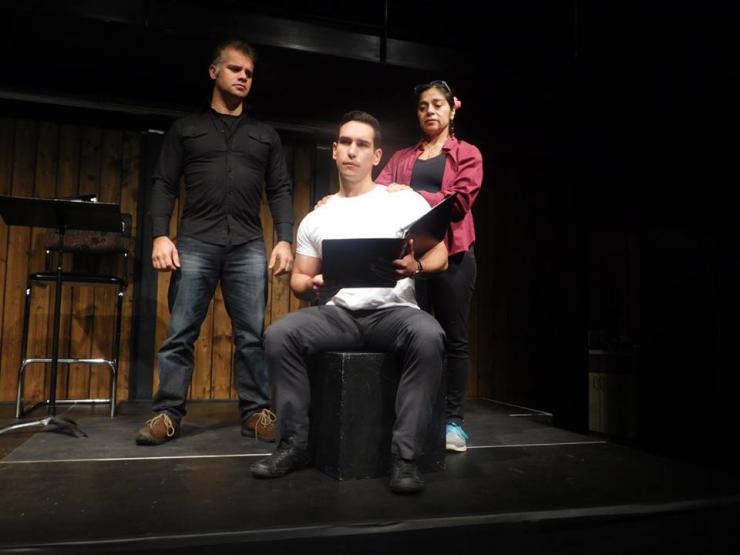
Christopher: Do you perceive the Pacific Northwest as part of a greater Latino theatre movement?
Nelda: I can only speak of my perception about Portland. It is sad to say, but not yet. With the exception of companies like eSe Teatro and Milagro and the small amount of people they are able to hire, other artists have not found outlets for expression, or opportunities for work that could put them in the spotlight and connect them to the major movement. There are valuable efforts surging in the community such as our annual Northwest Regional Latino Theatre Alliance Auditions and the upcoming LTC Steering Committee Convening, which will hopefully promote collaboration, broaden our perspective of the movement, and provide all artists an artistic home through building relationships.
Rose: For me, everything changed after the first Latina/o Theatre Commons convening in Boston three years ago. I felt there was a real opportunity to connect Latino theatres and pockets of talent across the country. Each region of our country has its own "immigrant" story, a fascinating history. I used to feel Seattle and the rest of the Northwest was often left out when thinking of Latina/o theatre in the US. I now feel that the stories of our region have a chance to be told, and reverberate in other parts of our country through our amazing colleagues in "the movement."
Carmen: Yes. I think we Vancouver Latino theatre artists really landed on the map of the greater Latino theatre movement this past January when we hosted a town hall livestreamed by HowlRound. We invited the community to an open discussion about fair representation on our stages following an open letter three of us wrote in response to the lack of Latino casting in a local production of The Motherfucker with the Hat. One hundred and fifty actors, directors, producers, designers, technicians, playwrights, union reps, and critics packed the room. People watched from Canada, the States, El Salvador, Guatemala, and England. Stephen Adly Guirgis also tuned in.
Christopher: What relationships do you see between non-Latino theatre companies and Latino companies?
Rose: Partnership, partnerships, partnerships.
Carmen: There are no strictly Latino companies in Vancouver, though I envision the day there will be one. Perhaps one of my younger colleagues will take that on.
Nelda: There is potential across the entire spectrum related to theatre. We need to keep developing actors, designers, and playwrights. We need local schools to teach Latino theatre, provide internships, and one-on one mentorship for professionals. What immediately comes to mind is that we all need to build awareness of the "invisible" potential that there is in the Latino artists in our community. We need commitment to advance these specific communities of artists and to recognize ourselves as valuable and necessary in the current and future theatre landscape. We need to find ways for theatre companies, independent artists, academics, and educators to collaborate.
There is potential across the entire spectrum related to theatre. We need to keep developing actors, designers, and playwrights. We need local schools to teach Latino theatre, provide internships, and one-on one mentorship for professionals.—Nelda Reyes

Christopher: What do you think the relationship between large regional
theatres and small Latino companies should look like?
Carmen: If there were to be a small Latino company here in Vancouver, I would hope that The Arts Club Theatre, our large company in town, would support us by programming our work on their stages.
Nelda: I think the main focus should be professional development. Thus, internship opportunities, mentoring programs that include all abilities (including multidisciplinary artists such as circus arts, street theatre, improvisation, and dance) are the priority for me. It is also important that these opportunities are open to all ages, as they tend to be targeted towards young artists. Ideally, opportunities could potentiate the abilities of immigrant artists who have already undergone formal education at institutions abroad and of those who have been informally trained but still have an artistic voice.
Another idea would be to exchange artists for certain productions or similar opportunities. For example, I am particularly interested in shadowing an experienced director. Is there a way to do it, and for this work to be acknowledged?
Rose: I feel that large established theatres have a responsibility to support with infrastructure and mentorship small ethnically-specific theatres, including Latino theatres. Latinos are the largest "minority" in our region. Shouldn't this demographic be reflected in all the arts across the board? I think strategic and intelligent conversations with small Latino companies and individual artists should be encouraged to discuss the actual "how" of the partnership. As local artists, we shouldn't just be the "authenticator after the fact." What I mean is that calling upon the community after the play has been chosen and cast. The relationship should be more than just getting "Latinos in the audience" and calling it outreach. I think the relationship should include the artists and community early on in the decision-making process. I also think it’s important to talk candidly about "diversity dollars" and how these funds are distributed among organizations large and small.
eSe Teatro has been very fortunate to have had a horizontal partnership with ACT Theatre. Over the past four years, eSe Teatro has had its mainstage production at ACT while continuing to produce in community venues.
Christopher: What kinds of struggles do Latina/o theatres face in the Pacific Northwest externally (funding, resources, audiences, etc.)?
Nelda: I think both audiences and funders are eager to see our work in general and hear from different communities of color. One challenge that I see over and over again is the lack of understanding about the grant system, and the struggle of properly preparing materials to access funding. From the funder's side, sometimes there is a lack of cultural competency and/or resources to adequately judge projects and understand their relevance for a specific community.
Christopher: Can you describe the relationship between the existing Latina/o theatre companies in the region now?
Nelda: My experience is limited to eSe Teatro and Milagro (it has been mostly in a one-on-one basis), and my participation in the Northwest Regional Latino Theatre Alliance.
Carmen: I have no relationship with anybody in Seattle and Portland simply because I'm too busy. I work in the theatre, and I'm also an author who's about to go on a book tour with my second memoir, Mexican Hooker #1 and My Other Roles Since the Revolution. I also work a lot out of town, and I'm a single mother of a nine-year-old boy. But I'm desperate for connection. So if anybody in Seattle or Portland wants to invite me to do my one-woman show Blue Box, or a reading or production of my play The Refugee Hotel, I'm here and I am open to the invitation.
Christopher: What role has the Latina/o Theatre Commons played in local
relationship building and in the local movement?
Rose: I was greatly inspired by the first Latina/o Theatre Commons in Boston. Participants were exhorted to create initiatives on the individual, local, regional, and national level. If it weren't for this pledge, eSe Teatro would not have organized the first Annual Northwest Regional Latino Theatre Auditions in 2014. These auditions bring together actors and directors in a welcoming space. Because of the LTC, we have a newly formed Northwest Regional Latino Theatre Alliance, which we hope will become strong after this event in Seattle. Above all there is a feeling that we are not struggling alone and that we can use a commons approach to make things happen and create initiatives.
Nelda: I think pretty minimal in the broader sense. A lot of us Latino artists do not work under the wing of a particular company or university, but rather operate independently. If the networking efforts are centered only in connecting through organizations, the impact is minimal for the majority of the artists. We need to create and organize as independent artists to create projects, alliances, and opportunities for us to actively participate, and for our work to be recognized beyond the traditional organizational structure.
Carmen: It has put us on the map, it is doing amazing, necessary work, and I support it. It's very exciting.


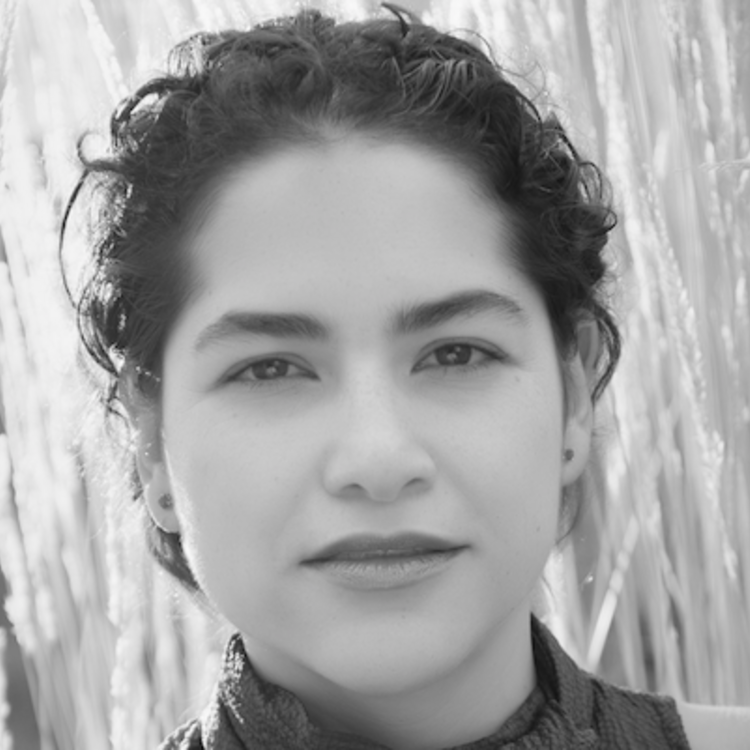
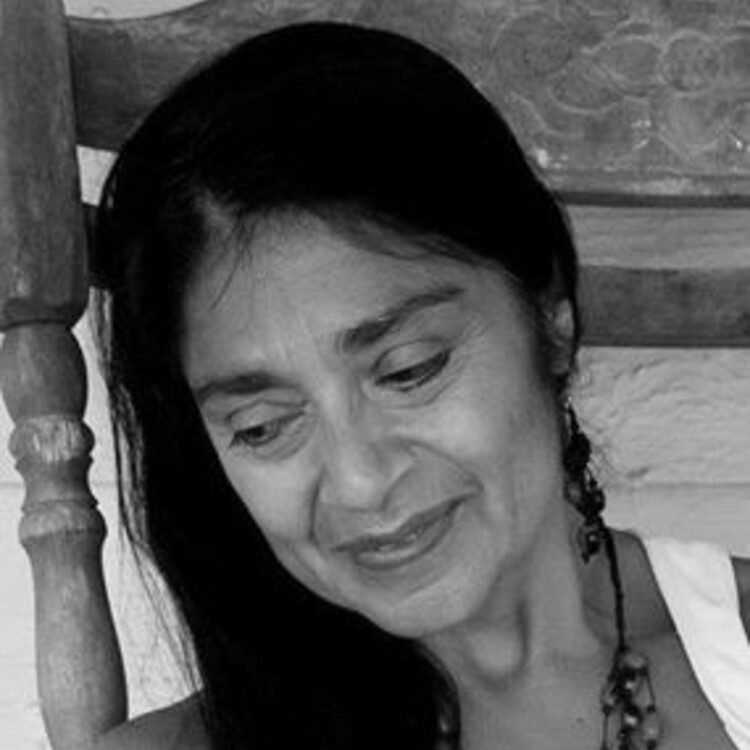

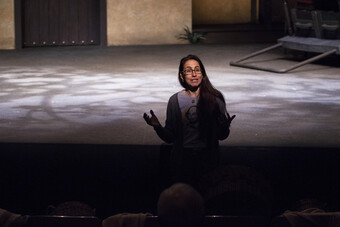


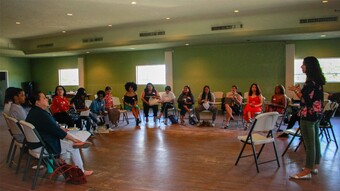
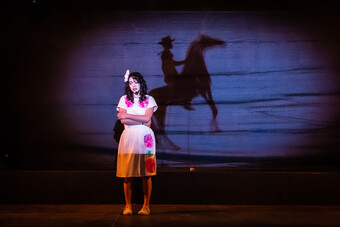


Comments
The article is just the start of the conversation—we want to know what you think about this subject, too! HowlRound is a space for knowledge-sharing, and we welcome spirited, thoughtful, and on-topic dialogue. Find our full comments policy here